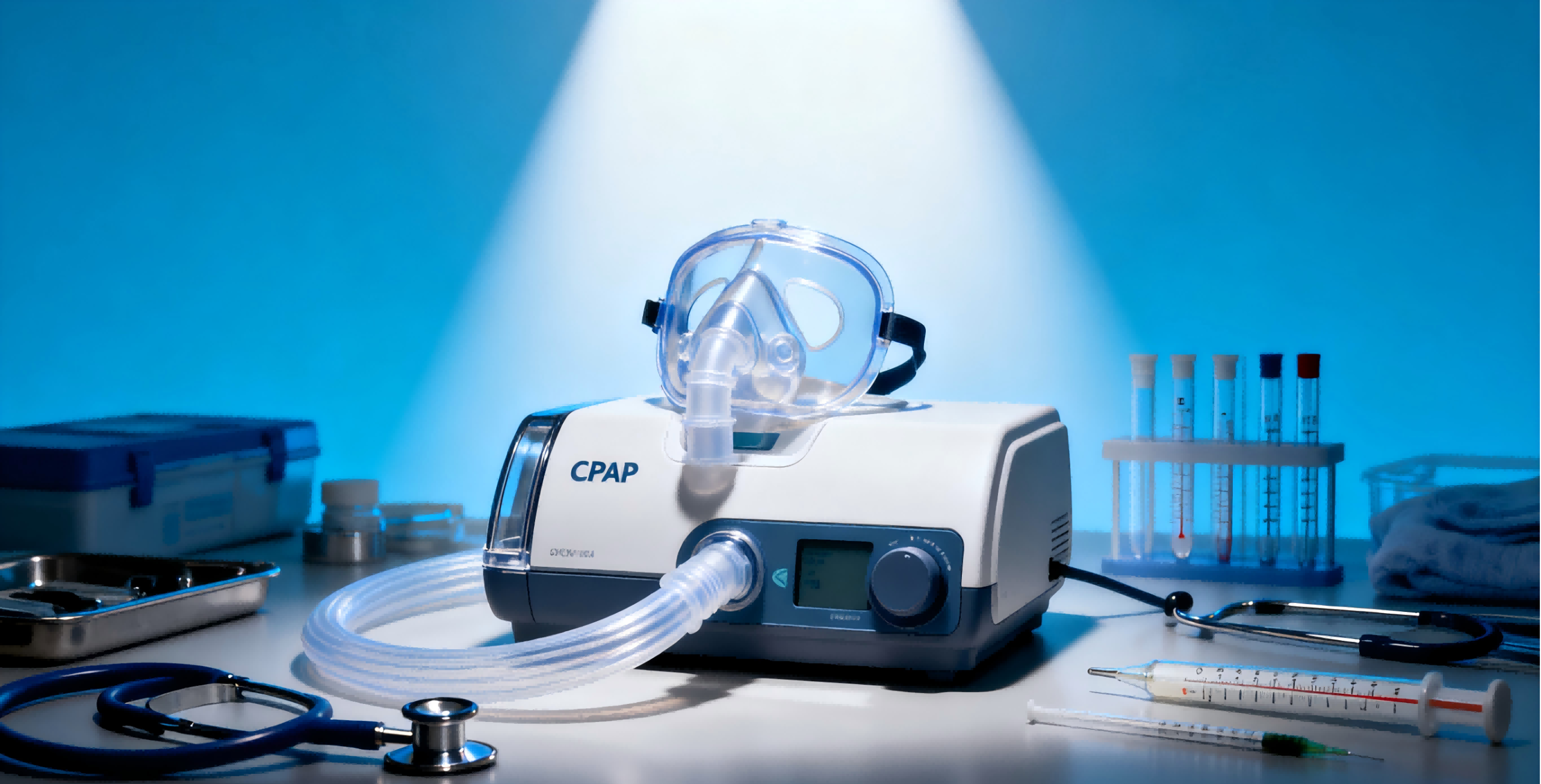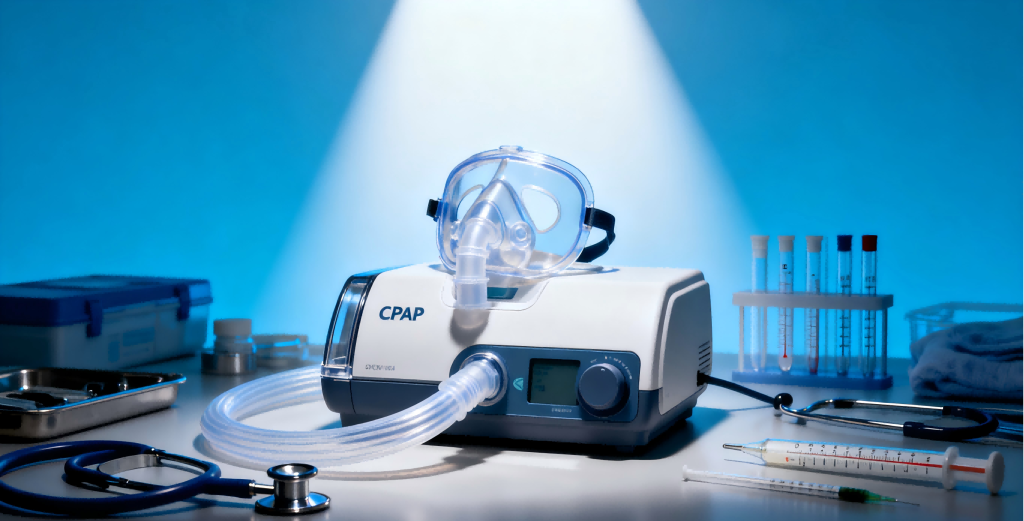CPAP Machines: Safe Solution or Hidden Risk


Introduction to CPAP Therapy
Sleep apnea is one of the most common sleep disorders, affecting millions of people worldwide. Those who suffer from this condition often stop breathing multiple times during the night, leading to daytime fatigue, headaches, and serious long-term health risks like high blood pressure, stroke, and heart disease. For decades, Continuous Positive Airway Pressure (CPAP) machines have been hailed as the “gold standard” treatment for obstructive sleep apnea. But with rising awareness, many patients now ask: Are CPAP machines a safe solution, or do they carry hidden risks?
What is a CPAP Machine?
A CPAP machine delivers a steady stream of pressurized air through a mask, keeping the airway open during sleep. This prevents the collapse of soft tissues in the throat, allowing for uninterrupted breathing and better oxygen flow throughout the night.
How CPAP Works in Treating Sleep Apnea
By maintaining constant airway pressure, CPAP prevents apnea episodes—periods where breathing stops for 10 seconds or longer. The device doesn’t cure sleep apnea but controls symptoms effectively, improving both sleep quality and overall health.
The Growing Popularity of CPAP Devices
Over the past decade, CPAP prescriptions have surged. According to the American Academy of Sleep Medicine, millions of patients rely on CPAP therapy daily. With innovations such as quieter machines, heated humidifiers, and travel-friendly designs, CPAP devices have become more accessible and user-friendly.
Benefits of Using CPAP Machines
Improved Breathing During Sleep
The most obvious benefit is uninterrupted breathing. Patients who use CPAP machines notice immediate relief from loud snoring, gasping, and choking episodes during sleep.
Better Sleep Quality and Energy Levels
When the brain and body receive adequate oxygen, users often report reduced fatigue, better concentration, and improved mood during the day.
Long-Term Health Benefits
Untreated sleep apnea can lead to cardiovascular problems, type 2 diabetes, and even dementia. Studies show that consistent CPAP use reduces these risks significantly, making it a potentially life-saving therapy.
Potential Risks and Hidden Concerns
Common Side Effects Users Experience
While effective, CPAP machines can cause discomfort. Users sometimes report:
- Dry mouth or throat
- Skin irritation from the mask
- Nosebleeds or sinus congestion
Hygiene and Infection Risks
A poorly maintained CPAP machine can become a breeding ground for bacteria, mold, and allergens. If not cleaned regularly, it may lead to respiratory infections or worsening allergies.
Issues with Mask Fit and Air Pressure
Finding the right mask fit is critical. A leaky or uncomfortable mask may reduce therapy effectiveness and discourage consistent use.
Are CPAP Machines Safe for Everyone?
Safety for Older Adults
Older adults generally tolerate CPAP well, but those with fragile skin may face irritation. Careful mask selection and frequent monitoring are recommended.
CPAP in Children and Young Adults
Though less common, pediatric sleep apnea exists. CPAP is safe when prescribed by specialists, but compliance can be challenging for children.
Pre-Existing Health Conditions and Risks
People with chronic respiratory issues, claustrophobia, or severe nasal blockages may struggle with CPAP use. Consulting a healthcare provider is essential before starting therapy.
Scientific Research and Medical Insights
Clinical Studies on Effectiveness
Research consistently shows CPAP improves sleep quality, reduces daytime drowsiness, and lowers cardiovascular risk factors in sleep apnea patients.
Reports on CPAP Safety Concerns
Recent studies highlight risks linked to poor hygiene and inconsistent use. However, when maintained properly, CPAP remains one of the safest long-term treatments available.
Alternatives to CPAP Therapy
Lifestyle Changes and Weight Management
For mild sleep apnea, weight loss, avoiding alcohol, and regular exercise may reduce symptoms significantly.
Oral Appliances for Sleep Apnea
Custom-fitted mouthguards can reposition the jaw to keep airways open, offering an alternative for patients who dislike CPAP.
Surgical Options and Their Effectiveness
Procedures such as uvulopalatopharyngoplasty (UPPP) or Inspire implant devices are available, though typically reserved for severe or CPAP-intolerant cases.
Tips for Safe and Effective CPAP Use
Proper Cleaning and Maintenance
Daily mask cleaning and weekly hose sanitization are vital to prevent infection risks. Manufacturers often recommend specialized CPAP cleaning devices or mild soap and water.
Choosing the Right Mask and Fit
Full-face, nasal, and nasal pillow masks each have pros and cons. A sleep specialist can help determine the best fit.
When to Consult a Sleep Specialist
If discomfort, side effects, or persistent fatigue occur despite CPAP use, professional evaluation ensures therapy adjustments are made.
Frequently Asked Questions (FAQs)
1. Can CPAP machines cause long-term health problems?
When used correctly and cleaned regularly, CPAP machines are safe and effective. The risks usually come from poor maintenance or misuse.
2. Do CPAP machines weaken natural breathing?
No, CPAP does not weaken your lungs. It simply supports your airway during sleep.
3. Are there natural alternatives to CPAP?
Weight loss, positional therapy, and lifestyle adjustments may help, but they are often less effective for moderate-to-severe sleep apnea.
4. How often should I clean my CPAP machine?
The mask should be cleaned daily, and the tubing and humidifier weekly.
5. Is CPAP safe for people with heart conditions?
Yes, and in fact, it may reduce the risk of heart-related complications. Always consult your doctor before starting therapy.
6. Can I travel with a CPAP machine?
Yes, most modern CPAP devices are travel-friendly and TSA-approved.
Conclusion: Safe Solution or Hidden Risk?
So, are CPAP machines a safe solution or a hidden risk? The truth lies in proper use and maintenance. When prescribed by a professional, fitted correctly, and cleaned regularly, CPAP machines are a safe, effective, and life-changing therapy for sleep apnea. While side effects and inconveniences exist, the long-term health benefits far outweigh the risks. Patients should work closely with their healthcare providers to maximize safety and effectiveness.
🔗 For more medical insights, check resources like the American Academy of Sleep Medicine.
















